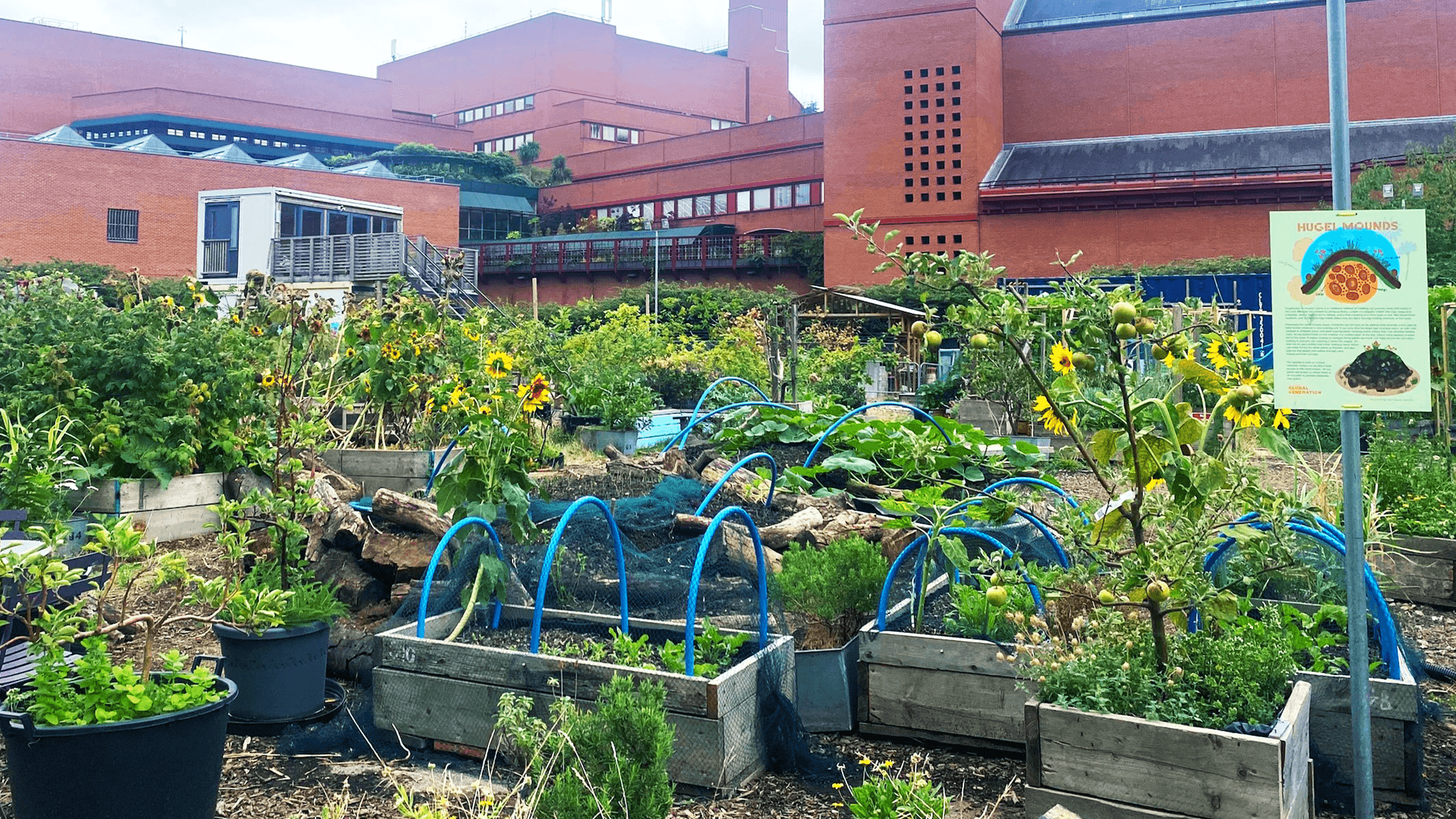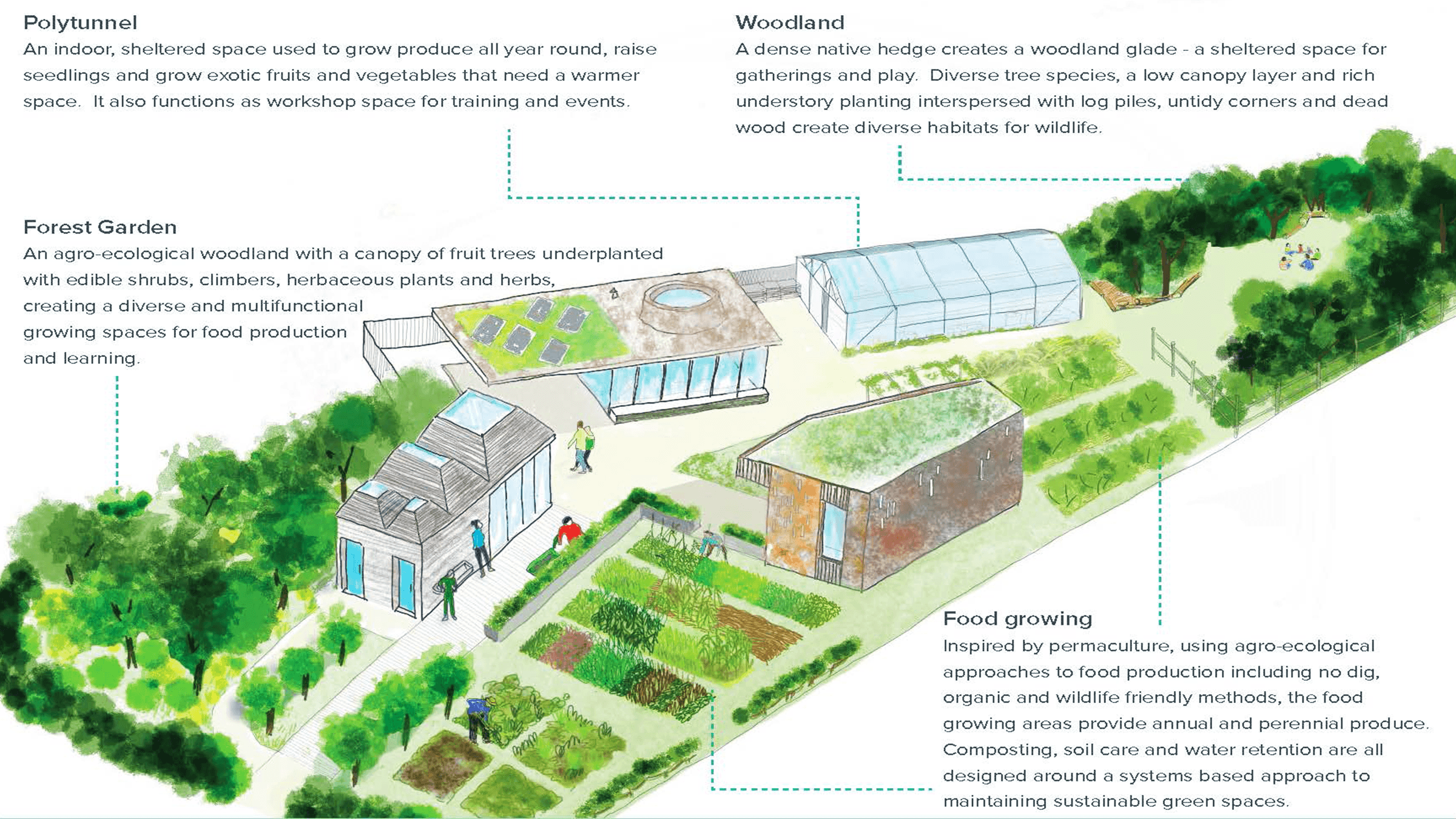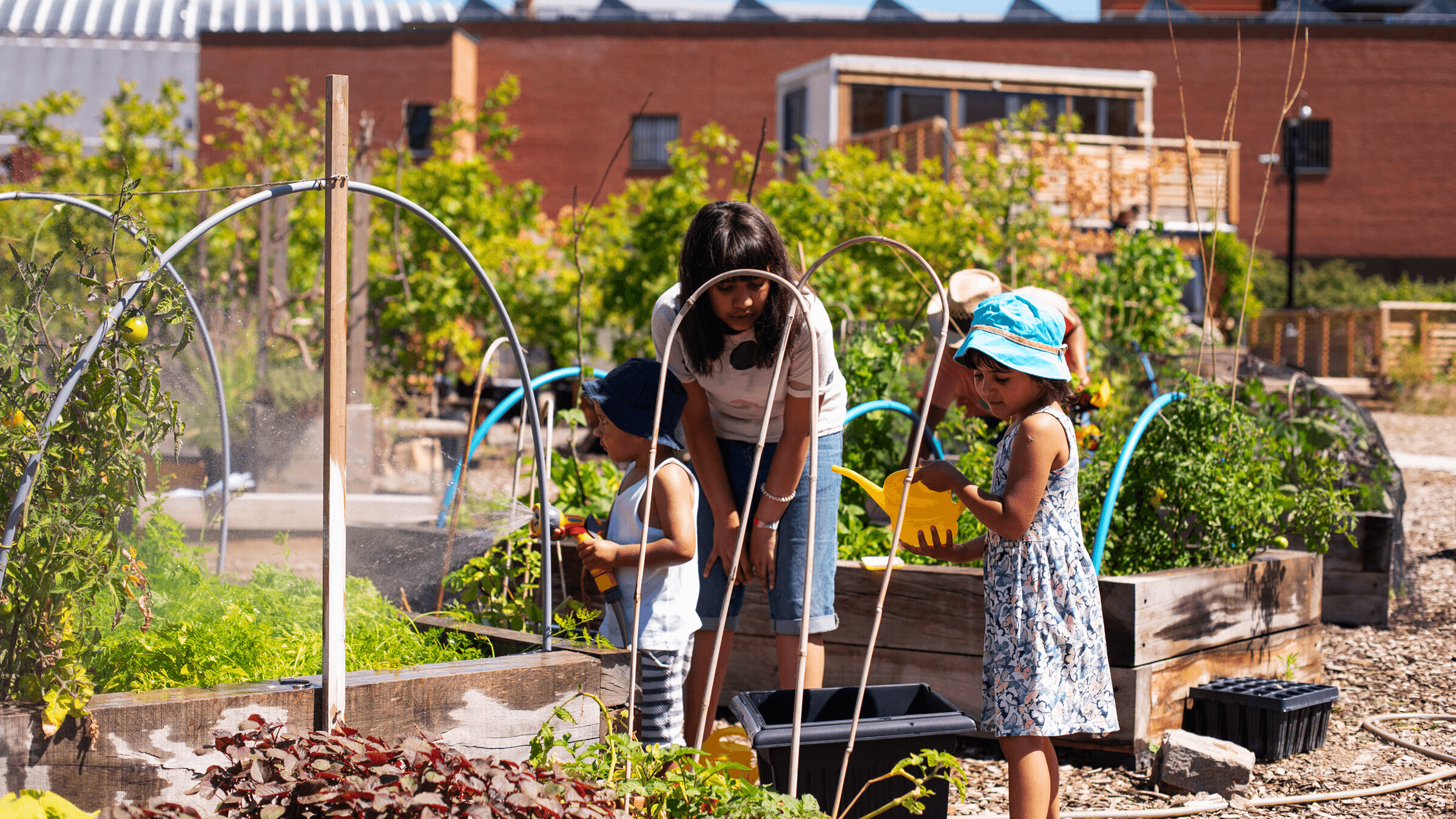If you have visited MBS’s offices in Primrose Mews, you may well have arrived at Chalk Farm tube station, crossed over the railway bridge, and walked up Regents Park Road towards the open green space of Primrose Hill. This five-minute journey provides a small snapshot of the Borough of Camden, and in particular the contrasting city environments that exist side-by-side.
Camden is well-known within London as a borough of both great wealth and serious deprivation. It’s home to leafy green streets and some of the capital’s most beautiful parks, as well as areas of high population density and rapid urban development.
Global Generation is a charity seeking to address this imbalance. Global Generation co-creates inner city gardens with local communities, providing holistic environmental education, and delivering a long term impact. In the boroughs of Camden, Islington and Southwark, the organisation does game-changing work with children and young people, as well as residents, businesses, and other local stakeholders.

Earlier this week, I had the pleasure of discussing Global Generation’s vital work with joint Directors Nicole Van Den Eijnde and Martina Mina, and Chair of Trustees Benaifer Bhandari.
“The spaces are valuable in and of themselves, for wildlife, biodiversity, and food,” said Nicole when we caught up on Tuesday, “but they’re also a platform on which to break down barriers, and to bring people together who wouldn’t usually meet. It’s not tangible, but something we hear a lot about our gardens is that they just feel different from the rest of urban London. That’s what we’re aiming for.”
“The spaces are valuable in and of themselves, for wildlife, biodiversity, and food… but they’re also a platform on which to break down barriers, and to bring people together.” – Nicole Van Den Eijnde, Director, Global Generation.
Since 2004, Global Generation has been co-creating temporary gardens on brownfield sites. Story Garden, which Moira wrote about last summer, is the charity’s current flagship garden. Sandwiched between the British Library and the Francis Crick Institute in King’s Cross, the garden is home to food growing beds tended by the local community (some in raised beds, others in colourful skips), a community kitchen, event spaces and a classroom. Hand-painted wooden signs direct visitors down meandering footpaths and around clusters of apple trees, and the collections of picnic benches invite passersby to sit down and enjoy the space.
There’s also the Floating Garden on a barge on the nearby canal, and the Paper Garden, which was established last year in Canada Water and built from sixty percent recycled materials, making it one of London’s most successful circular building projects.

Global Generation facilitates a raft of educational, community and corporate programmes in these gardens, from weekly clubs and camping trips for young people to business away-days. “We deliberately base ourselves in areas which have experienced rapid change,” said Benaifer. “We’re for everyone, but particularly for communities who are facing deprivation, and residents who don’t have access to nature elsewhere. It’s not about creating beautiful, well-kept gardens. It’s about keeping it real, and keeping it accessible to the myriad of communities who live in these areas.”
Until now, Global Generation’s gardens have always been temporary, built on soon-to-be developed land or within movable skips. Excitingly, its next garden will be permanent. Global Generation has secured a site called The Triangle on a 999-year lease, in a unique arrangement that sets a precedent for how developers can give back to their communities in a more permanent way.
“We now have an opportunity to build a 1,000-year vision,” Martina told me, “and to really focus on the long-term benefits of our gardens, both environmentally and socially.”
The new site sits just off York Way in Islington, in an area with very little green space and high levels of social deprivation. Global Generation is planning to establish a forest garden, a woodland meadow and a food growing plot as well as a classroom, a kitchen, and an office. Each element will be built with sustainability embedded, with most materials being either natural or re-used.
For communities in the surrounding area, The Triangle looks set to leave a phenomenal legacy, underpinned by the concept of co-creation. “It’s about different groups coming together to realise the vision,” explained Martina. “We want to give everyone in the surrounding area the opportunity to participate in The Triangle, and to feel physically connected to the space because they’ve helped create it. We’ll be hosting community volunteer days, and creating a formal paid programme for young people to gain landscaping and sustainable building training. Construction professionals will come in and volunteer their expertise, and corporate away days will contribute to the physical building and planting.”

Indeed, local businesses and corporate organisations have a critical part to play: the project requires full community buy-in, as well as financial investment. Business partnerships – through corporate off-sites or workshop programmes, for example – allow for companies to fulfil their own internal corporate social responsibility goals, as well as to integrate in their community in a long-term way.
“The permanent nature of The Triangle means we can make a truly generational impact,” said Nicole. “The children who help us build it will grow up around the garden, and then their own children will enjoy it, and their children’s children, and so on. It’s about creating long-term community stewardship.”
Global Generation is driving real change. Since 2009, the gardens have had more than 40,000 visitors, and each year the charity engages 3,000 people in its activities. “Our ability to be influential in communities partly comes down to the relentless focus on our USP,” reflected Benaifer. “We have one vision, and we stick to it. Working in the charity sector can be tough – but being clear on your goal and aligning your funding strategy to it is what drives impact.”
“Since 2009, the gardens have had more than 40,000 visitors, and each year the charity engages 3,000 people in its activities.”
I came away from my conversation feeling deeply inspired. It was particularly uplifting to hear from Nicole, Martina and Benaifer about how Global Generation is equipping young people with skills, confidence, leadership capabilities, and helping them define and embark on their futures. The new Triangle site will only accelerate this impact, improving community cohesion and serving as a case study for how urban gardens can leave a permanent positive mark on the environment, the community, and individuals. In a time of growing economic inequality and a worsening climate crisis, Global Generation’s work has never been more urgent.
There is a myriad of ways for businesses to get involved in Global Generation. Do visit the website, or get in touch with Martina or Nicole, if you’d like to be a part of building a happier, greener future for communities in London.








